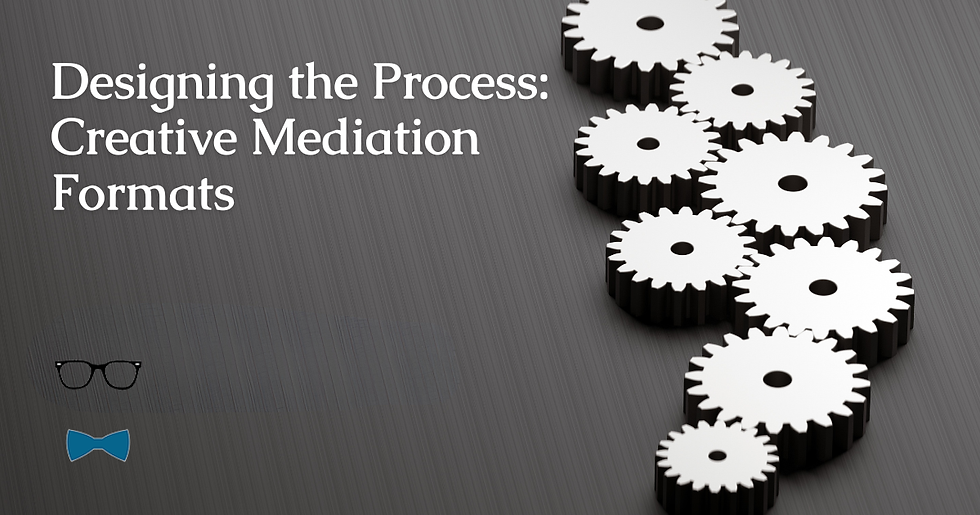The Balcony in Mediation
- Cooper Shattuck

- Feb 23, 2023
- 2 min read
Updated: May 25, 2023

Who doesn’t like a room with a view? Unfortunately, in many mediations, the parties, the lawyers, and maybe even the mediator get tunnel vision. It usually happens mid-afternoon, after lunch, after negotiating for a few hours. Everyone loses perspective. Emotions begin to creep in. They creep in regardless of the type of case. Instead of making progress, everyone digs in. That didn’t work well in World War I’s trench warfare, and it doesn’t bode well for a successful mediation. If one sees any light at the end of the tunnel, they believe it to be a train headed their way. This is a good time to go to the balcony (and maybe take some sugary snacks with you).
Most mediations reach this stage. When they do reach this point – when the parties are close to their negotiation goals, and it is evident that there will be no overlap once they get there – a settlement will be more challenging than perhaps first thought.
This is where mediators earn their fees. This is where the real work – the serious negotiations – begins. Many mediations never reach this fertile ground because the negotiations are abandoned out of frustration. Anyone who does a lot of mediation knows and anticipates this stage. It takes patience and persistence to make it past this point – to determine whether a resolution is possible. It might be that day (hopefully) or, as is happening more often, later.
One technique for surviving this stage is going to the balcony. It can be done figuratively or literally. It’s simply a time or opportunity to adjust one’s perspective.
The participants must step back from the process and look at where they were, the progress that has been made, the reasons for compromise, the basis for the goals that were established, and the basis for adjusting these goals, and then take a deep breath before carrying on. It’s a time to get out of the weeds and revisit the results of earlier brainstorming. Maybe a resolution that seemed unreasonable or improbable will make more sense. Maybe the interests declared earlier in the negotiations were not the real or most important interests. Maybe another brainstorming session will yield new settlement possibilities which were not illuminated previously.



Comments